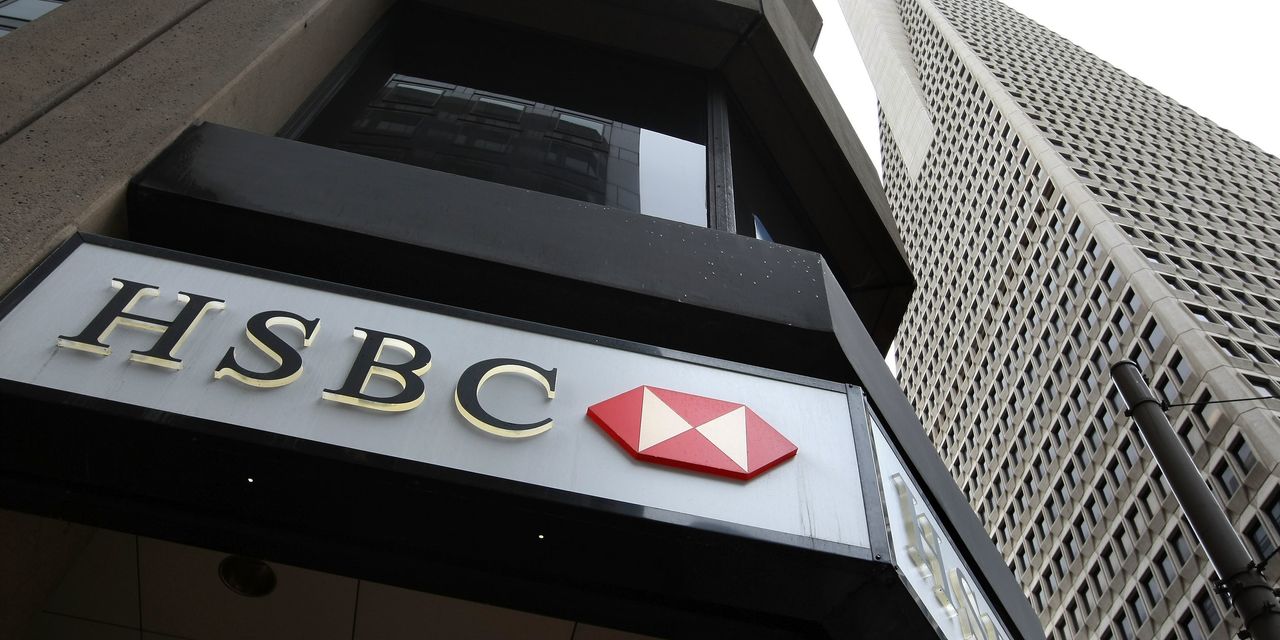HSBC Holdings shares dropped as much as 8% in London trade on Tuesday as the bank announced a surprise shake-up in management amid its third-quarter earnings report.
HSBC shares
HSBA,
HSBC,
fell after the bank downgraded its net interest income forecast for 2023 by $1 billion and announced the sudden departure of finance chief Ewen Stevenson.
Stevenson will exit his position as group CFO on Dec. 31 and will leave the bank in April 2023. He will be succeeded by Georges Elhedery, co-CEO of global banking and markets, in January next year, and Greg Guyett will take on the role of CEO of global banking and markets.
Group CEO Noel Quinn thanked Stevenson for playing “a key part” in leading HSBC’s growth agenda in the last four years and “embedding disciplined cost management across the organization.”
UBS analysts led by Jason Napier said the market will be “disappointed” with today’s announcement.
Benjamin Toms, an analyst at RBC Capital Markets, added that investors may be questioning what the leadership change means for costs as Stevenson headed the bank’s cost program.
In a call on Tuesday morning with analysts, Tom Rayner, an analyst at Numis Securities, asked executives now that Stevenson is leaving, if there is a risk that hitting the 2% adjusted cost growth target in 2023 may depend more on paring back investment rather than finding additional cost savings.
Quinn said the group was “absolutely committed to that cost target,” but it wasn’t going to be easy in a high-inflation environment.
“We also know we’ve got cost savings coming through next year from the transformation program we’ve already embarked upon. And that’s the equivalent of 3%. It’s about $1 billion of flow-through savings,” he told Rayner.
Earnings beat expectations
On Tuesday, HSBC Holdings reported adjusted profits before tax of $6.5 billion, beating analyst expectations of $6 billion and last year’s pre-tax profits of $5.5 billion.
The figures were driven by a 28% rise in adjusted revenues of $14.3 billion.
The bank also announced expected credit losses of $1.1 billion for the quarter, reflecting “increased economic uncertainty, inflation, rising interest rates and the ongoing developments in mainland China’s commercial real-estate sector,” it said.
Last year it set aside $659 million in the same period.
HSBC’s outlook expects expected credit losses of around 30 basis points for this year and at the higher 30-40 bps end for 2023, “given the uncertain market outlook,” Stevenson said.
It upgraded its guidance for net interest income by $1 billion to $32 billion for this year. For 2023, it reduced its guidance to net interest income to at least $36 billion, from at least $37 billion, partly down to weak sterling against the U.S dollar.
HSBC shares have slipped 2% this year.
Toms noted the main drivers of underperformance vs. the sector in the last two years have been “the cutting of the dividend and geopolitical tensions; both factors have softened. HSBC provides a combination of both growth and capital returns.”
